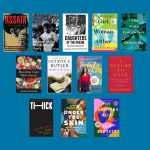In follow on to Ruth’s post today about her thoughts on the Food Stamp Challenge experience, and about her new awareness about living that close to the margins of hunger, poverty and general economic insecurity, I couldn’t help but think today again about the DC Saves campaign, and about how saving is truly one of the best ways of preventing teetering on that line.
My thoughts drifted to the movie, Pursuit of Happyness, and how painful it was to watch a father’s struggle to move he and his son further and further back from that edge.
Then to my own bank account, a reminder of how, despite having joined DC Saves, I’m barely keeping up with my own commitment and savings goal.
About how saving is, for whatever reasons and a variety of circumstances, so difficult for so many, even when we know better. And even when we’re better off, comparatively, than many others.
That the ability to save, I’ve learned, has far less to do with one’s annual earnings or expenses, and far more to do with one’s beliefs, habits and awareness. Which is good, at least, since these things often tend to be far more within the realm of our immediate control than our salary or the region’s cost of living or rental markets.
Still, I do often find my discipline wavering, when I know that I’d be so much better off in the long-run to stay on track.
This even though I know, firsthand, as the daughter of a single mother, a woman going through a divorce, a professional who has faced a layoff and a resident living in a city with an extremely high cost of living, how crucially important saving is.
I was doubly reminded when Carolee sent around an email today from Colleen Daily of CAAB (a key leader in the DC Saves campaign), who had talleyed up the saving priorities of those enrolled to date in the DC Saves campaign. They are:
23% saving for an emergency fund
19% saving for retirement
15% saving for debt repayment
10% saving for homeownership
8% saving for education,
6% saving for a vacation
5% saving for investment savings
5% did not specify a savings goal
3% saving for business
2% saving for home improvement
2% saving for a consumer product
2% saving for a special event
Yet another stark reminder of the need–felt by so many–to be prepared for those unforseen circumstances that everyone is vulnerable to that can make the difference between making it and falling off the margin.
It helps reinforce to such an extent the importance of the work we, and our Grantee Partners, do to build the financial literacy skills and wealth of low-income, single women in our region, who are perhaps living closer to the margin than anyone else.
It brings together for me the importance, first, of protecting our own economic security (For a start, consider joining DC Saves where the only commitment required is to your own financial future!) to the greatest extent possible, and then to think about ways to support that of others as a means of creating a better community for each of us–where women, girls and families are all living within the margins, able to focus on building a life, rather than just keeping their balance.



